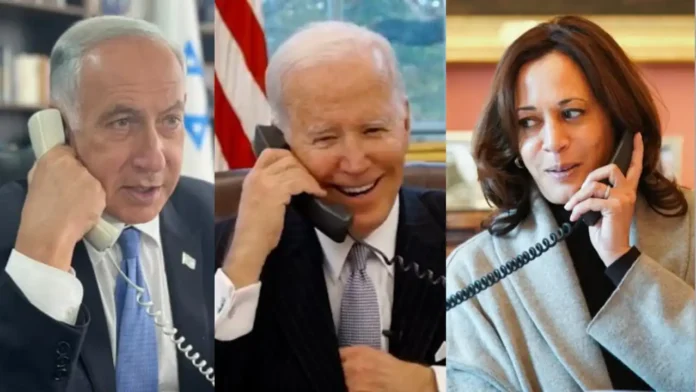In a high-stakes phone call on Wednesday, President Joe Biden, Vice President Kamala Harris, and Israeli Prime Minister Benjamin Netanyahu focused on the urgent need for a ceasefire in Gaza and the release of hostages held by Hamas.
The conversation, described by the White House as crucial, emphasized the importance of finalizing the ceasefire and hostage release deal, highlighting the upcoming negotiations in Cairo as pivotal for overcoming the remaining obstacles.
Central to these negotiations is the contentious Philadelphia Corridor, a critical 8.7-mile stretch along the Gaza-Egypt border.
An Israeli broadcaster reported that Israel’s withdrawal from this area was part of the proposed ceasefire agreement.
However, Netanyahu’s office swiftly refuted any such plans, reiterating Israel’s commitment to securing its southern border and dismantling Hamas’s military capabilities.
This denial appears to contradict earlier statements by U.S. Secretary of State Antony Blinken, who indicated that Israel had agreed to a bridging proposal involving troop withdrawals.
As these diplomatic efforts unfold, the situation in the Middle East remains tense. The USS Abraham Lincoln, a powerful U.S. carrier strike group, has arrived in the region, bolstering America’s military presence amidst fears of potential escalation.
This move coincides with the expected arrival of CIA Director William Burns and other senior U.S. negotiators in Cairo for further high-level talks aimed at achieving a lasting ceasefire in Gaza.
The complex nature of these negotiations underscores the delicate balance of power in the region, with Washington playing a crucial role in mediating between the conflicting parties.
As both sides grapple with the details of the proposed agreements, the world watches closely, hoping for a resolution that will bring an end to the violence and secure the release of the hostages.




